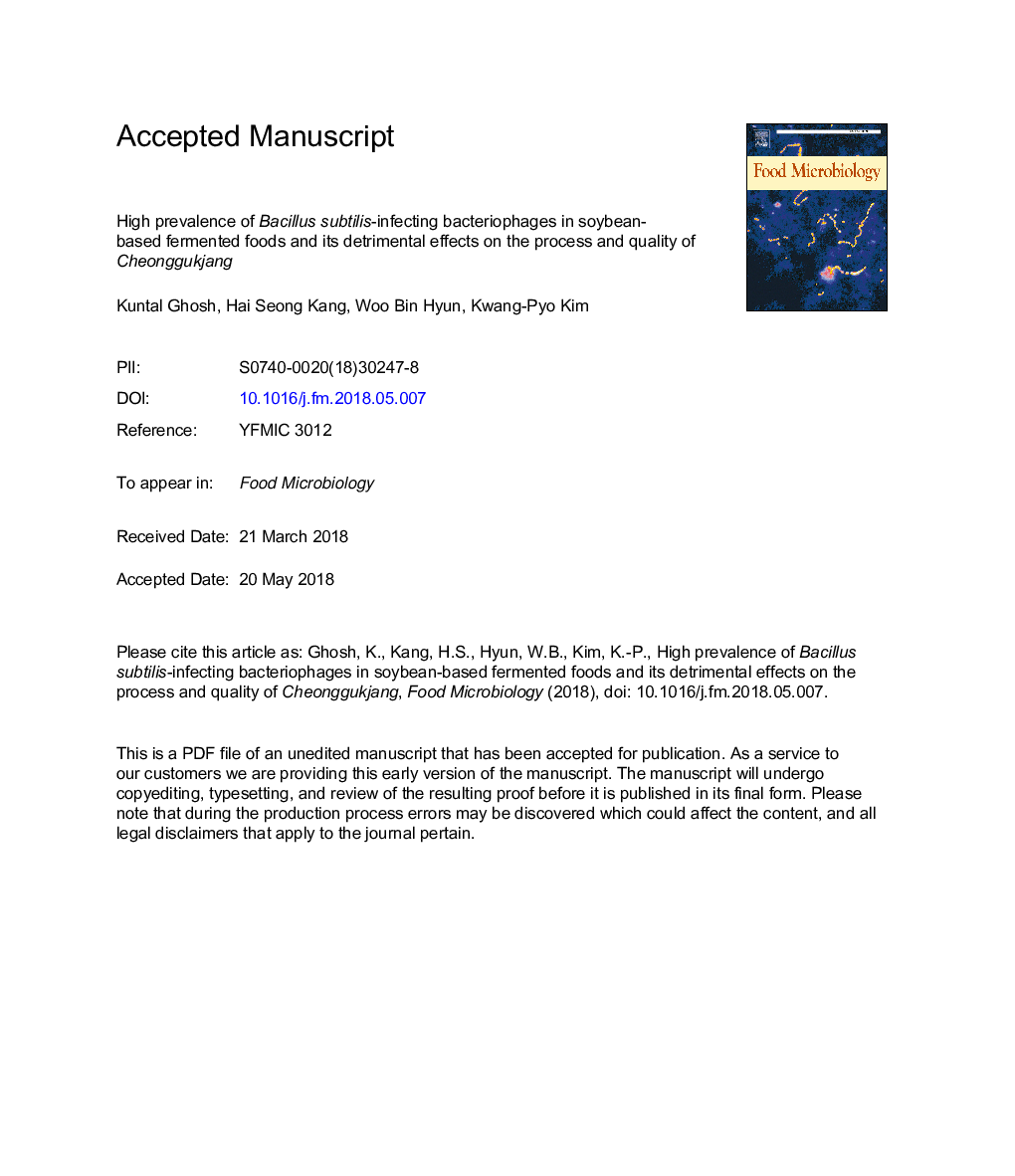| Article ID | Journal | Published Year | Pages | File Type |
|---|---|---|---|---|
| 8843432 | Food Microbiology | 2018 | 33 Pages |
Abstract
While the detrimental effect of bacteriophages on lactic acid bacterial fermentation is well documented, the importance of Bacillus subtilis phages in soybean-based fermented foods is not. In this study, we show for the first time that 100% of Korean soybean-based fermented foods (Doenjang, Gochujang, and Cheonggukjang) and 70% of raw materials (Meju and rice straw) were contaminated with B. subtilis-infecting phages (as high as 3.7â¯Ãâ¯104â¯PFUâ¯gâ1). Among 15 isolated B. subtilis-infecting phages, BSP18 was selected for further studies due to its specificity to and relatively broad host infectivity (34%) against B. subtilis. This Myoviridae family phage, BSP18 could infect all of the tested wild-type and commercially-used strains for soybean-based fermented food preparation. Furthermore, artificial contamination of as low as 102â¯PFUâ¯gâ1 of BSP18 significantly inhibited B. subtilis growth during Cheonggukjang fermentation. Moreover, phage-treated samples contained considerably more degraded γ-PGA which could negatively affect the functional property of Cheonggukjang. We also present the data, strongly suggesting BSP18-encoded, not bacterial, γ-PGA hydrolase was responsible for γ-PGA degradation. In conclusion, B. subtilis phages are widespread in Korean soybean-based fermented foods and it should be of great concern as phages may hamper the bacterial growth during fermentation and yield poor quality products.
Keywords
Related Topics
Life Sciences
Agricultural and Biological Sciences
Food Science
Authors
Kuntal Ghosh, Hai Seong Kang, Woo Bin Hyun, Kwang-Pyo Kim,
